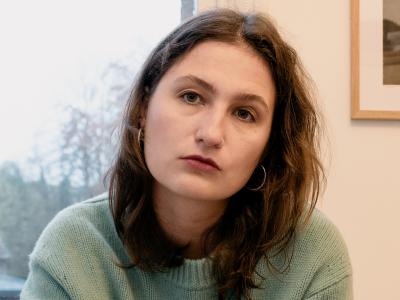
Dr Viktoria Bavykina is a curator, art critic, and sociologist of culture, being currently a 2025 British Council 90th Anniversary Research Fellow at IASH. She is co-founder of the Ukrainian Photographies platform and co-curator of the Ukrainian Pavilion at the 60th Venice Biennale, as well as an associate curator of the Open Eye Gallery in Liverpool, where in 2023, she co-curated the HOME programme as part of the EuroFestival, a parallel programme of the 2023 Eurovision Song Contest. In 2024, she co-organised a symposium on Ukrainian photography at the University of Salford. She works with photography, political art, and feminist optics in artistic practices. She was a curator of the Grynyov Art Foundation and art director of the AKT art space in Kyiv, Ukraine. She holds a PhD in sociology of culture from V. N. Karazin Kharkiv National University, and is a recipient of the UK Government’s Chevening Scholarship.
My IASH research aims to examine the often-overlooked influence of Russian colonialism on the culture and art of former USSR countries, with a particular focus on Ukraine, Lithuania, and Kazakhstan.
Russian colonialism remains a complex and under-explored field of study, different from other forms of colonialism that have been researched and integrated into global humanitarian discourse. While the so-called racial component is central to many colonial experiences, it is important to recognise that the domination of one group by another can also occur within the same race. Equally significant is the economic and resource-driven nature of colonialism, which often serves as a primary motive for domination. However, another crucial aspect is the culture-centred colonialism — a defining feature of Russian colonialism, which systematically aimed to destroy local identities and disrupt the development of cultural processes.
Another critical dimension of my research is the examination of colonial legacies in the present day and their continued exploitation by Russia. Understanding this requires recognising Russia as a modern empire that continues to implement colonial policies both within its borders and beyond. Russian intrusion in Moldova in 1990, two wars in Chechnya (Ichkeria) in 1994 and 1999, invasion of Georgia in 2008, the annexation of Crimea in 2014 and the full-scale invasion of Ukraine in 2022 represent the culmination of these policies, but Russia’s cultural imperialism long predates these events. For decades, Russia has strategically constructed its global identity by appropriating the culture of former “republics”. A striking example is the world-renowned Russian avant-garde, which includes artists such as Volodymyr Tatlin and Kazymyr Malevych — both of Ukrainian origin but persistently labelled as Russian. A major challenge is that many international institutions still refuse to update their knowledge. As a result, many non-Russian artists are still wrongly labelled as Russian, reinforcing colonial knowledge in the art world.
